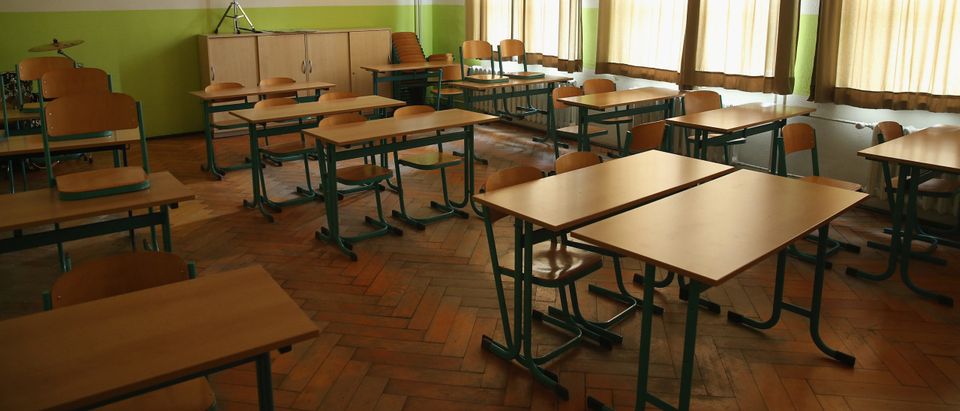Since March of 2020, millions of American students have been absent from their classrooms.
Virtual learning, incorporated as a desperate measure to soften school closings, turned out to be a blistering failure, and students’ literacy are suffering as a result.
Public schools across the nation chose to remain closed through the ‘20-’21 academic year, often at the demands of national teachers unions claiming (often in opposition to data) that schools were unsafe, going so far as to insist the CDC walk back their suggestions to reopen school buildings. These unions, education advocacy groups and legislators that demanded schools be kept closed have remained largely silent on how we plan to make up the lost education of children during the year-and-a-half they’ve been absent from the classroom.
Standardized test scores from spring 2021 are abysmal. In Florida, 3rd grade reading test scores fell 7% in Leon County from 2019. In Texas, 3rd through 8th grade students fell 4% since 2019 in reading, and 15% in math. The Indiana Department of Education declared in June that English and Math scores were in “significant decline.” The NWEA test, a math and literacy exam series used in all 50 states, reports that national reading and math test scores declined considerably — with a quarter of all students absent. The academic performance of our nation’s students is in freefall.
Despite this educational crisis, 84% of public school students are advancing to the next grade despite teacher and parental concerns. Many teachers have echoed concerns that literacy and math levels leave the next grade’s teacher with an incredible amount of work without the resources to begin. I’ve received several emails from anxious middle school teachers who are at a loss for methods to teach 6th and 7th grade science to students who can’t read at a 5th grade level.
The long-term effects of this missed year-and-a-half are predicted to be catastrophic. Professor Jonathan Schweig of Pardee Rand suggests generational deficits will plague low-income communities. Edit Inotai of the CEID warns of a permanent lag between social groups, making it difficult for students to reach literacy necessary for university or the trades. Emma Garcia and Elaine Weiss of the EPI cite that long-term absenteeism in the past has resulted in a learning loss that cripples students for the rest of their education if left unattended.
Leadership in the educational space has been strangely absent at worst, and misdirective at best, on this issue. The two largest teachers unions in the nation have dozens of articles and resources on social justice issues, activism and the necessity to vote for Democrat policies — but nothing on the subject of how to teach children who have been robbed of an education these last three semesters. Instead of calling for a concerted effort to close the “COVID-19 literacy gap,” the president of the AFT has spent her time pontificating on racial teaching practices.
Major education publications have picked up the same picket signs. Chalkbeat and EducationWeek are busy focusing on racially-charged education and advocacy but have offered nothing to inspire or assist teachers. Literacy giants such as Pearson, McGraw-Hill and Scholastic have similarly provided limited, if any, materials to combat the learning loss. U.S. Secretary of Education Miguel Cardona has substituted a plan addressing the learning gaps nationwide with a series of suggestions to improve social programs in schools. This opportunism from the left to take advantage of teachers’ desperation by mixing in radical policies is a poor way to strengthen a community they claim to value so much.
So far, it appears that a sink-or-swim approach has been handed to American educators. At a time when many public school teachers have so little faith in their schools, requesting teachers to close the COVID-19 literacy gap with miniscule support could prove fatal to the public education system in the United States. At times of crisis, when obstacles are larger than our individual capacity to handle them, we look to strong leadership. For millions of teachers in the summer of 2021, the silence is deafening.
Now more than ever, parents and teachers have a responsibility to hold their leaders accountable. If the left is unable or unwilling to provide leadership in solving the gap caused by closing the schools during the COVID-19 pandemic, then it’s clear support from educators needs to shift elsewhere.
This is a golden opportunity for education reform advocates from conservative and libertarian circles to begin discussions on fixing this academic trainwreck. It will ultimately fall on state legislatures, parent action groups, private schools and independent leadership to pick up what the left has deftly abandoned. In an environment where the silence cripples the confidence of teachers into fall of 2021, a reassuring and steady voice of acknowledgement and determination could very well swing the balance of educational support from blue to red.
Tony Kinnett is a curriculum developer, educator, and STEM coordinator in Indianapolis, Indiana, and has bylines in The Daily Caller, The Federalist FEE, and Washington Examiner.


